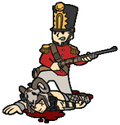|
Congress had explicitly prohibited the administration from aiding the contras. This was a way to do it with the black intelligence budget.
|
|
|
|

|
| # ? Jun 10, 2024 22:14 |
|
Tab8715 posted:The plan was modified (I'm not exactly sure why) so that the Contras could receive funding to fight the Sandinista's in Nicaragua Congress said that Reagan couldn't send any more money directly to the Sandinistas, so Reagan and North set up a deal where they'd give Iran the arms for free and rather than paying the US for them, Iran would just send the money directly to the Sandinistas. It was a way to get around Congress to get money to the Sandinistas. Edit: Beaten by above quote:Oliver North was basically viewed as "John McClane" by a significant segment of the public. [actual voters]What are you, some kind of commie human being? North was protecting America, you're just falling for liberal media bullshit![/actual voters] This more appropriate subject matter for another thread though. If you want to talk about the US government breaking international law, you'll find a lively discussion on the subject in D&D Grand Prize Winner posted:How effective were the British Q-ships during the war? Did the US or anyone else build similar vessels? The US had Q ships, but they were very unsuccessful. In the Atlantic, USS Atik was sunk on its first patrol and none of them sank any U-boats. In the Pacific, none of them sunk any Japanese subs, but the USS Anacapa damaged two US subs which it thought were Japanese subs. I don't know anything about the performance of the British Q-ships. gohuskies fucked around with this message at 04:25 on Feb 14, 2013 |
|
|
|
In the WWI or WWII, did merchant raiders ever really pay off(in the economic sense)? It seems that with the advent of radio communication, merchant raiders typically had a very short life span. They were either found on the open sea and destroyed or bottled up in a port and scuttled. It seems that the Allied fleets were so large that tying up a few destroyers and a cruiser to hunt them down wasn't a huge loss and they rarely destroyed or captured significant surface tonnage. Was the cost of converting one merchant ship to a commerce raider so low that it didn't matter?
|
|
|
|
|
Veins McGee posted:In the WWI or WWII, did merchant raiders ever really pay off(in the economic sense)? It seems that with the advent of radio communication, merchant raiders typically had a very short life span. They were either found on the open sea and destroyed or bottled up in a port and scuttled. It seems that the Allied fleets were so large that tying up a few destroyers and a cruiser to hunt them down wasn't a huge loss and they rarely destroyed or captured significant surface tonnage. Edit: Actually, I keep wondering what Mahan would have made of the 20th century in general, since he's writing at such a weird time for naval development (wrote his book during the 1880s and published in 1890). For example, we have steam power and ironclads already, and artillery is advancing very rapidly, but as far as I can tell he's not sure whether or not the developments in artillery have made possible a gun that can puncture very heavy metal plate, which means he wonders whether or not we're going to go back to ramming. The Influence of Sea Power Upon History was written after/during these technological developments, but right before America's colonial push, and before the European naval race--on which he had a huge influence, incidentally--which means that everything is just sort of hanging there. Edited again for precious clarity. HEY GUNS fucked around with this message at 06:46 on Feb 14, 2013 |
|
|
|
Commerce raiding with warships, sure, but if you're, say, Germany, what else are you gonna do with your fast merchies and reefer ships? It's trivial to stick a couple light guns on them and toss the dice for the war effort. There's a decent rate of return on minelaying ops with them, too, in resources tied up, if not necessarily tonnage sunk. Now, should the Italians have used their fast banana boats to ship supplies to North Africa, instead of turning them into auxiliary cruisers? Pretty definitely yes, but you should also get a third of your merchant fleet back before you declare war and get them impounded. So it goes.
|
|
|
|
HEGEL SMOKE A J posted:I'd be interested in learning this as well, since I'm reading Mahan right now and he is adamant that commerce raiding doesn't damage the enemy enough to pay off and that it is adopted by forces that believe they are are too weak to afford anything else, wasting resources that would be better spent attacking their enemy's actual navy. I can see this in World War 1, but as far as World War 2 is concerned I have heard that things got pretty serious for Britain in 1942, and that commerce raiding is one of the few things that really made Churchill lose sleep. Mahan wasn't around to see even World War 1's unrestricted submarine warfare, so I think it kind of goes without saying that his views on commerce raiding are going to be skewed as commerce raiding capabilities evolved, culminating in what the US did to Japan. I think I could see where he was going with that though: In a world without submarines, allocating warships to sink merchant shipping is only going to net you so much tonnage before those ships are found. If you committed individual ships to do this job, they'd be easy prey to any larger force. If you committed an entire fleet to it, a Decisive Battle is going to result anyway.
|
|
|
|
Azran posted:Now that we are talking about the Japanese - I've heard people say that the "Bushido" as we know it (a code of honorable conduct) was just a product of historical revisionism by the Imperial Japan of the 20th century. Those same people (I'm sorry for the lack of names - I heard it in a couple of History Channel documentaries a few years ago) say the Samurai were actually just as bad as any mercenary - they would turn against their masters for the right price, or would kill them themselves if that implied they would survive. It's a bit more complicated than that, and it is tricky to describe it as a "strict bushido warrior code" vs "just dudes on a field stabbing each other". From the beginning, the samurai had a distinct culture compared to the aristicrats who lorded over them. There are hints that the samurai had an origin among the many horse-centered cultures around Korea, due to their distinct behavior and different military techniques and tactics compared to pre-samurai Japan. The samurai were generally considered to be rougher than the aristocratic elites, and among the samurai there was a distain of the soft and cushy aristocratic culture. This is for example evident in that the Imperial court litterature, art and poetry never really took off with the samurai. So you have a bunch of relatively ascetic warrior blokes who thinks that the cultural elite of the country are wimps. Then Zen Buddhism arrives on the scene, and it really captivates the samurai. They combine it with aspects of Confucianism to create a set of cultural ideas spanning over philosophy, art and customs that suits their tastes in a way that the court culture never could. The Zen Buddhism of the samurai do include many aspects of what we could call a warrior code. One of those aspects is the inevitability of death and the importance of coming to terms with it, and not to fear it. This is a fundamental part of the 19th century revisionist Bushido, but it did exist before that and it really resonated with the samurai caste. Outside of Zen Buddhism, you also had a distinct cultural idea of honour, as in the value of doing certain things in battle. There was immense prestige attached to being the first warrior (or contingent, as armies grew) to get to grips with the enemy. Completing feats such as having the first flag across enemy walls, defeating worthy enemies in duels etc. were also led to great prestige. Before uniform back banners became a thing, some samurai would be carrying banners declaring their heritage and challenging specific enemies that they held a grudge for. Ritual suicide when facing defeat was a thing. So certain elements of the "Bushido myth" did exist. However, it's not so simple. Some samurai got famous for fighting to the last man, but if you read actual battle descriptions you'll see far more routs than last stands. Sekigahara, the pivotal samurai battle, was over before half the participants had even had contact with the enemy. Samurai lied, stole, betrayed and assassinated left and right, both inside and outside their own families. The pop culture idea of ninja being deployed to do things that a samurai's honour would not allow is completely laughable. Oda Nobunaga, the first great unifier, committed suicide when one of his closest generals ambushed him at a temple. When Tokugawa Ieyasu wanted to kill off Toyotomi Hideyori, who he had sworn an oath that he would protect, he took a bell that Hideyori had made and kind of squinted at it until he could interpret two of the kanji as an insult. That was casus belli enough. The whole seppuku suicide thing is believed to have been related to people expecting to be tortured to death if captured, not just to preserve their honour. These examples of behavior that flies right in the face of "Bushido" just go on and on. The latter idea of Bushido, which was developed from the 17th century but really bloomed in the 19th century, was largely an ideal that was inspired by the previous warrior culture, but had no practical connection to it. It's a philosophy for beaurocrats pretending to be warriors to find meaning in their gradually sliding status in the world. It is far more binary with "proper" vs. "bad" behavor, when the samurai were more likely to think in terms of "ideal" vs. "lovely, but it works". If I should sum up my idea of medieval Japan, I would say that the Samurai had a warrior culture, heavily influenced by Zen Buddhism and Confucianism, that led to certain "honorable" behavior being highly praised. However, they were also pragmatic warriors, and many of them were ready to betray their own brother if it made them more powerful. In many ways they were not much different from any culture that heavily praises martial prowess, be them Viking, Greek or Roman. When you cut off all the bells and whistles, the warrior stories told by these cultures are often strikingly similar. lilljonas fucked around with this message at 09:39 on Feb 14, 2013 |
|
|
|
Grand Prize Winner posted:How effective were the British Q-ships during the war? Did the US or anyone else build similar vessels? Q ships worked during ww1, they sank a few u boats but they didn't do anything during ww2. Even based on their ww1 performance they were not a very good idea.
|
|
|
|
SeanBeansShako posted:Even dumber, was building a Super Battleship with all that steel which spent most of the war anchored in the home Islands. KYOON GRIFFEY JR posted:To be fair, nobody really had that one nailed down at the time. If you look at the attrition rates the Carrier forces suffered just launching one or two strikes at Midway, you can appreciate how in the 30's it would be easy to anticipate that Naval battles would have two phases: a first phase were the opposing carriers either kill or mission-kill each other and at the end of which nobody has enough planes left to form a coherent strike, and a second phase where the more durable battleships drive through the gap the carriers have created and do the job of mopping up the enemy fleet. Now there were a lot of problems with this expectation, but the development of longer and longer operational ranges for planes and radar and C&C facilities basically guaranteed that surface vessels never need get within sight of each other. Unless you did something completely loving stupid like leave a slow, static force like an anchored invasion fleet completely without air cover. Alchenar fucked around with this message at 11:18 on Feb 14, 2013 |
|
|
|
lilljonas posted:From the beginning, the samurai had a distinct culture compared to the aristicrats who lorded over them. There are hints that the samurai had an origin among the many horse-centered cultures around Korea, due to their distinct behavior and different military techniques and tactics compared to pre-samurai Japan. The samurai were generally considered to be rougher than the aristocratic elites, and among the samurai there was a distain of the soft and cushy aristocratic culture. This is for example evident in that the Imperial court litterature, art and poetry never really took off with the samurai. Ah, so that's why they were horse archers. They already had that tradition introduced from the mainland, despite Japan being so mountainous. I know, I know, most of the battles were over the flatland which was where the farming occurred.
|
|
|
|
Veins McGee posted:In the WWI or WWII, did merchant raiders ever really pay off(in the economic sense)? It seems that with the advent of radio communication, merchant raiders typically had a very short life span. They were either found on the open sea and destroyed or bottled up in a port and scuttled. It seems that the Allied fleets were so large that tying up a few destroyers and a cruiser to hunt them down wasn't a huge loss and they rarely destroyed or captured significant surface tonnage. If you're speaking solely of converted merchant ships, I'm not too sure. But commerce raider wise, SMS Emden was pretty effective in World War I.
|
|
|
|
The Wolf was pretty effective in WW1 as well, it was a converted merchant. It also survived and returned to port unlike many other raiders. http://en.wikipedia.org/wiki/SMS_Wolf_%28auxiliary_cruiser%29 There's a good book about the Wolf and its success that's just titled The Wolf.
|
|
|
lilljonas posted:It's a bit more complicated than that, and it is tricky to describe it as a "strict bushido warrior code" vs "just dudes on a field stabbing each other". And to add, the whole idea of 'Bushido' in the WW2 sense with the Japanese Imperial Army was complete bunk. This was brought up earlier in the thread were somebody posted an excellent article on how some Japanese guy in the late Meiji Era wrote a bunch of stuff and theories about this old thing and over time his works pretty much became the basis of what the Imperial Japanese Army considered the warrior code which they mixed with their own brand of militant fascism. Somebody should do a break down post on the whole concept and history of both Chivalry and Western Honour and it affected the martial world. SeanBeansShako fucked around with this message at 16:37 on Feb 14, 2013 |
|
|
|
|
When you live in a world where power is decided by whoever has a monopoly of force, that creates very strong incentives for you to find reasons for the people with swords not to just decide that they should be running things.
|
|
|
|
Phobophilia posted:Ah, so that's why they were horse archers. They already had that tradition introduced from the mainland, despite Japan being so mountainous. Sort of. It had a lot to do with the Emishi, a people who had settled most of the main island of Honsh� before the Yamato people arrived on the scene in the southwest. The Emishi were very good at horse archery, and the infantry armies of the Yamato had a lot of trouble with them. The early attempts to conquer them (7th to 10th century or so) tended to fail, as the Yamato armies were more or less modelled after the Chinese infantry-heavy armies. Like most pondering infantry armies they were worn out by hit-and-run attacks by the nimble Emishi cavalry. It was only when the Yamato armies started to field their own horse archers (a.k.a. samurai) that they really started to push the Emishi back and dominate Honshu. One theory is that the Yamato invited or recruited people who had knowledge of horse breeding and how to fight as horse archers, as a way to deal with the Emishi. The other theory is that the Yamato eventually learned to adopt the tactics of the Emishi, maybe even by bribing some of them to join their side. It could also be a combination of those two theories. Either way, you see a sudden shift from Chinese style infantry armies to horse archery around the 10th century, the introduction of a warrior culture that is distinctly different from the previous one, and the rise of the samurai caste. Once horse archery was established as the main way of fighting, it survived more or less intact, as horse archers met other horse archers on the battlefield. This period saw the tactic of individual mounted samurai who sort of duelled against each other, each one supported by small bands of foot retainers. One of my professors compared it to tank duels, where the goal was to get a shot at the least protected angle of the opponent, while never exposing a weak angle against the opposition. The followers were there to protect the rider from being mobbed by other groups of infantry, and to grab downed opponents and cut off their heads as trophies. This version of horse archery remained dominant until some dastardly Yuan dynasty Chinese (read: Mongols) invaded in 1274 and 1281. Meeting foreign opposition who didn't use the same tactic was a sudden wake-up call, and after that you would gradually see a shift towards entire units of infantry operating separately. Once the infantry was strong enough, especially armed with enough bows and handguns to deter any horse archers, the mounted samurai stopped being primarily archer-oriented and turned into shock cavalry meant to drive away missile troops and weakened units. lilljonas fucked around with this message at 16:33 on Feb 14, 2013 |
|
|
KYOON GRIFFEY JR posted:If you're speaking solely of converted merchant ships, I'm not too sure. But commerce raider wise, SMS Emden was pretty effective in World War I. In the long run, how effective was it to have 1 ship raid commerce for about 3 months before being taken out of action? Same with the converted merchant ships, they all seemed to have 1 cruise before being recalled to Germany(with captured cargo) for propaganda purposes or were lost in action. I don't know how important the captured cargo could have been but its not like the Royal Navy ever had to significantly diminish the Home Fleet in order to deal with the threat of surface raiders. The tonnage sunk/captured doesn't seem all that impressive alone but, maybe when looked at on the whole(including submarine actions) it was worthwhile. Maybe it was a case of excess capacity for the production of armor/guns/sailors with no better use? Maybe it was just a hold over from the pre-radio/age of sail Naval strategy? I don't know. Just throwing out some thoughts. Also, I'm part of the way through 'On Infantry'. Definitely learning a lot but I find the generalizations based on nationality(ex. Russian soldiers naturally good at fighting in the woods) a bit hard to take seriously.
|
|
|
|
|
Veins McGee posted:In the long run, how effective was it to have 1 ship raid commerce for about 3 months before being taken out of action? I think you may be overestimating the resource investment. Converted merchies are already built, are not being used, they weren't armored, and it is not hard to come by 5.9" guns or lighter in naval shipyards. You have to crew them, yes, but that's not really an issue, either, given the numbers involved. With a small cost, and the chance for something like this, it's not a terribly controversial move, strategically. Veins McGee posted:Also, I'm part of the way through 'On Infantry'. Definitely learning a lot but I find the generalizations based on nationality(ex. Russian soldiers naturally good at fighting in the woods) a bit hard to take seriously. Haha, I don't remember that one. I know there's a "Soviet soldiers were dogged and able to withstand severe hardship, though poorly trained," which seems fair enough if stereotypical. I stand by my recommendation, it's a very solid overview, but, by necessity, it generalizes. The copious end-notes are quite valuable, as well.
|
|
|
|
SeanBeansShako posted:And to add, the whole idea of 'Bushido' in the WW2 sense with the Japanese Imperial Army was complete bunk. This was brought up earlier in the thread were somebody posted an excellent article on how some Japanese guy in the late Meiji Era wrote a bunch of stuff and theories about this old thing and over time his works pretty much became the basis of what the Imperial Japanese Army considered the warrior code which they mixed with their own brand of militant fascism. I'll just post this Friday's article on Bushido again in case someone hasn't read this yet. I suppose this was that excellent article you meant. The Historical Foundations of Bushido http://www.koryu.com/library/kfriday2.html
|
|
|
Pyle posted:I'll just post this Friday's article on Bushido again in case someone hasn't read this yet. I suppose this was that excellent article you meant. Yeah that is the one. I feel sorry for Japanese Historians (The modern sane ones, the right wingers who know what happened in the 2nd World War but deny it can gently caress off) at the amount of Samurai and Ninja pop culture they have to constantly clear up.
|
|
|
|
|
SeanBeansShako posted:I feel sorry for Japanese Historians (The modern sane ones, the right wingers who know what happened in the 2nd World War but deny it can gently caress off) at the amount of Samurai and Ninja pop culture they have to constantly clear up. 
|
|
|
HEGEL SMOKE A J posted:Guess what happens when I tell people I study German military history. TIGER TANK GLORIOUS GERMAN ELITE STORMTROOPER INFANTRY ROMMEL LAST STAND AT BERLIN SUPERIOR BLITZKRIEG TACTICS. Oh god kill it dear god when will it end  . .
|
|
|
|
|
Talking to Polish nationalists is odd, "yeah the Nazis, they weren't that bad. God I hate Russians though"
|
|
|
|
SeanBeansShako posted:TIGER TANK GLORIOUS GERMAN ELITE STORMTROOPER INFANTRY ROMMEL LAST STAND AT BERLIN SUPERIOR BLITZKRIEG TACTICS. Seriously though, everyone should read "Wages of Destruction," even if you know nothing about economic history. The blurb on the Amazon page is kind of misleading: it's true that the Nazis, as it said, "made decisions that were...economically driven," it's just that they were the wrong ones. Consistently and overwhelmingly. HEY GUNS fucked around with this message at 23:59 on Feb 14, 2013 |
|
|
|
lilljonas posted:The pop culture idea of ninja Weren't ninjas peasant guerrillas or something like that? Used improvised farm tools and stealthy tactics to defend their homes?
|
|
|
|
Rabhadh posted:Talking to Polish nationalists is odd, "yeah the Nazis, they weren't that bad. God I hate Russians though" I think it can be safely said that the unwashed masses all over the world make historians cringe when it comes to either WW2 or any other popular topic like ACW. So much of our understanding of history is basically modern folklore - perhaps better rooted in real events than the legend of King Arthur and the knights of the round table, but still conforming to the rules of myths and moral stories. Eg. the Nazi apologist tale "Hitler didn't know about holocaust" follows the ancient format of "wise king surrounded by mischievous advisors". And "have you heard about Wojtek the Polish army bear?" Almost like a fable.
|
|
|
|
Surely there's a term for T-34 fetishism as well. Cheap, reliable, and badass. I play enough Civ that I have come to the conclusion that quantity has a quality all of its own.
|
|
|
|
Rabhadh posted:Talking to Polish nationalists is odd, "yeah the Nazis, they weren't that bad. God I hate Russians though" The Germans were around for 6 years. The Russians for 40.
|
|
|
|
Rabhadh posted:Talking to Polish nationalists is odd, "yeah the Nazis, they weren't that bad. God I hate Russians though" Catherine was too soft on the Poles. (Though she sure did love smoking em am I rite) Also if you want to see some hilariously nonfactual and silly Russia vs. Poland stuff check out 1612 edit: NWS for blood maybe? Also, Netflix has it on DVD Rodrigo Diaz fucked around with this message at 00:37 on Feb 15, 2013 |
|
|
|
Nenonen posted:And "have you heard about Wojtek the Polish army bear?" Almost like a fable. I think that might just be a Goon thing.
|
|
|
|
Alchenar posted:The Germans were around for 6 years. The Russians for 40.
|
|
|
|
Veins McGee posted:In the long run, how effective was it to have 1 ship raid commerce for about 3 months before being taken out of action? It accomplished significantly more than like the entire rest of the German light cruiser fleet, so I'd say it had a significant impact. Brits didn't have to draw down the home fleet because it's only one ship, but they did have to spend a lot more time and effort on convoying and such. They were in a good position because the Australians and Japanese could pick up the slack.
|
|
|
|
Alchenar posted:The Germans were around for 6 years. The Russians for 40. Try like 200.
|
|
|
|
SeanBeansShako posted:TIGER TANK GLORIOUS GERMAN ELITE STORMTROOPER INFANTRY ROMMEL LAST STAND AT BERLIN SUPERIOR BLITZKRIEG TACTICS. I may be through the looking glass here but in the many discussions I've had on the internet about such stuff it seems like the pendulum regarding German military prowess has swung far the other direction. Of course there are still hordes of hardcore German > * people out there too so it is just a bad situation for everybody. Me, I'm just considered wrong by all.
|
|
|
|
I don't think anyone really questions the professionalism and competence of the Heer until like, early '45 at the earliest.
|
|
|
Rodrigo Diaz posted:Also if you want to see some hilariously nonfactual and silly Russia vs. Poland stuff check out 1612 edit: NWS for blood maybe? Also, Netflix has it on DVD That movie is hilarious and worth a watch, it gets points for being graphically realistic with cannon ball death during the end A Winged Hussar meets the middle of some chain shot with messy results.
|
|
|
|
|
SeanBeansShako posted:That movie is hilarious and worth a watch, it gets points for being graphically realistic with cannon ball death during the end A Winged Hussar meets the middle of some chain shot with messy results. Oh rad. I'll be sure to watch that.
|
|
|
|
It also has a clearly Slavic guy playing a Mongolian.
|
|
|
|
|
Is it true that the French Foreign Legion during the Falkland's War were outnumbered like 1 to 200 and they still hold their ground, fighting to their death?
|
|
|
liddl ninja posted:Is it true that the French Foreign Legion during the Falkland's War were outnumbered like 1 to 200 and they still hold their ground, fighting to their death? This is the first time I've heard of this? Sounds like nonsense to me.
|
|
|
|
|

|
| # ? Jun 10, 2024 22:14 |
|
Alchenar posted:The Germans were around for 6 years. The Russians for 40. The first partition of Poland took place in 1772 so there was plenty of time to develop a mistrust for both, but the insurgencies in the Russian part were bloodier and resulted in mass exiles to Siberia. The territories lost to Soviet Union in WW2 didn't help a bit even if Poland was compensated with a slice of Germany. The post-WW2 situation was different in the sense that all the repression was done by Poles themselves, though it was obvious on whose orders. The Polish hostility to Russia is also related their reaction to Pan-slavism (unity of Slavic peoples). At first Polish nationalists supported it as a means of freeing themselves from German and Austrian rule, but soon recognized that it would only drive them all under the Russian rule. Meanwhile the Czech, Serb and other Central European and Balkan nationalists who were not occupied by Russia but either Austrians or Ottomans continued supporting Pan-slavism, which contributed to the formation of Czechoslovakia and Yugoslavia and partly why Czechoslovakia had pretty good relations to Soviet Union between the World Wars (the other reason being that Czechoslovakia and USSR had a common enemy in Poland). If there is antagonism toward Russians in present day Czech Republic it stems from 1948 and 1968.
|
|
|





















